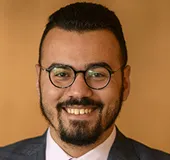-
CENTRES
Progammes & Centres
Location
France is stepping up its strategic role, providing an alternative for countries seeking security guarantees from a powerful, nuclear, Western military

In a speech to the Armed Forces on 20 January, President Emmanuel Macron laid out a blueprint for France’s grand strategy beyond Europe and the Russian invasion of Ukraine. He said that France, in addition to being a leader in Europe and a reliable NATO ally, should “redesign” (repenser) its partnerships and build on “exceptional relations with countries like Greece, Egypt, the United Arab Emirates (UAE), or India.”
France has been one of the most active European players, alongside the United Kingdom, in building minilateral formats in Europe and the Indo-Pacific, with similar momentum to the US-backed ones. Paris shares with Washington the ambition of assembling tailored coalitions to protect its security interests and to establish itself as a credible security provider for partners in regions that lack a proper security architecture.
Yet Paris regularly emphasises that it does not align fully with US’s strategic goals. France, therefore, presents an interesting alternative for countries seeking security guarantees from a powerful, nuclear, Western military without the political price of appearing tied to the United States’ (US) strategic objectives, notably vis-à-vis China or Iran. France’s strategic partners are simultaneously elevating their bilateral relationships, as shown by the Egyptian President’s visit to Delhi, which contributes to the consolidation of an increasingly consistent and robust network.
France has been one of the most active European players, alongside the United Kingdom, in building minilateral formats in Europe and the Indo-Pacific, with similar momentum to the US-backed ones.
These dynamics hold particular significance for the geopolitical space that ranges from the Eastern Mediterranean to the Indian Ocean, a region increasingly presented as West Asia. This region, where the interests of great powers and regional powers intersect and often collide, has concentrated much of the West’s diplomatic energy since the 1970s. It has recently been subdued by the escalation of strategic competition with the two big powers that lay on West Asia’s fringes and define its borders: Russia and China.
As the US aims to change the nature of its involvement in West Asia from a sole security guarantor to a defence and military partner, the coalitions and partnerships that France is building can prove interesting and helpful, provided respective efforts to elaborate a West Asia security architecture are conducted in a cooperative and transparent manner.
The importance of West Asia as a geopolitical space
The concept of West Asia is gaining ground in the US. It results from the limits of both the old, static Middle East and the more recent Indo-Pacific concepts to adequately frame the dynamics unfolding in the “broader Middle East.”
These dynamics derive to a great extent from the pull factor created by lesser Western involvement and interest in the region, compounded by the new focus on the war in Ukraine. This has emboldened international, regional, and local players, and created opportunities for them to gain ground in the region. The latter includes China as the chief trade and investment partner, and Russia positioned itself as a security provider building on its successful defence of the Syrian regime. They also involve regional powers with revisionist agendas, such as Iran or Turkey, and finally, resident countries who invested massively in their defence and proactively assert their interests, such as Israel or the UAE. If the Middle East still constitutes the beating heart, with the Suez Canal as the lifeline, this all-out competition has direct applications and impacts in the Eastern Mediterranean, the South Caucasus, Central Asia, and the Horn of Africa.
The latter includes China as the chief trade and investment partner, and Russia positioned itself as a security provider building on its successful defence of the Syrian regime.
This evolving reality translates into new partnerships and reconfigurations. The most significant is the 2020 normalisation agreements between Israel and several Arab States, known as Abraham Accords, extended to a fledgling “Indo-Abrahamic Alliance” through the I2U2 format that brings together Israel, the U., the UAE, and India. It also translates into efforts by West Asian countries to diversify their partnerships to compensate for the U.S. shifting geostrategic objectives that deprioritise the Middle East in favour of the Indo-Pacific. A significant proportion of the regional powers has been trying to preserve, if not enhance, their ties with Moscow and Beijing.
The most telling example of elevated partnership across the West Asia spectrum is between Egypt and India. The visit of Egypt’s president, Abdel Fattah El-Sisi, to Delhi, as a chief guest for India's Republic Day, is not just about India and Egypt rebuilding their bilateral ties following three decades of marginal diplomacy in the post-Cold War era. It is rooted in the mutual recognition of the rise of India as a global power, the irrefutable strategic positioning of Egypt at the crossroads of West Asia, Africa, and Europe, and to some extent, the Indian Ocean. The proximity in timing between the Sisi-Modi Summit and Macron's speech opens new possibilities for reconfigurations in West Asia.
French-assembled West Asian architecture
The concept of West Asia has not made its way to Paris yet. France has a tradition of strong diplomatic involvement in the Arab world, which still represents a coherent entity for Paris. And contrarily to the United States, the Western Indian Ocean is an integral part of France’s Indo-Pacific strategy and one of its key pillars along with the Southern Pacific. Strategising West Asia will therefore require breaking some administrative silos. Yet the network of partnerships highlighted by President Macron clearly shows that France is ready and in practice, the best-equipped European partner to set out a consistent, integrated policy for the Mediterranean Sea-Indian Ocean continuum.
Securing the sea lines of communication that connect France’s mainland with its overseas territories in the Indian Ocean has long been a top priority, hence, the buildup of a naval base in Djibouti.
The French presence in “West Asia” is nothing new. Securing the sea lines of communication that connect France’s mainland with its overseas territories in the Indian Ocean has long been a top priority, hence, the buildup of a naval base in Djibouti. Paris then invested in building a strong partnership with the UAE, where a naval base and an airbase were inaugurated in 2009, which have proven instrumental for French deployments to the Levant in the framework of the D-ISIS Coalition.
There are a lot of similarities between France's and the US’ efforts in consolidating a West Asian system. While the US created the I2U2, France launched its own trilateral format with India and UAE in September 2022. The US established its Negev Forum (the Abraham accords nations plus Egypt) to gather regional powers to work collectively on regional security, education and tolerance, water and food security, tourism, and energy– simply put, an agenda for regional integration. France mediated the Baghdad Conference to support Iraq in 2021, mainly against interference from its neighbours. The US and France assembled their respective naval coalitions in the Strait of Hormuz in 2019: International Maritime Security Construct (IMSC) for the US with international partners, and European Maritime Awareness in the SoH (EMASOH) for France, with European partners, headquartered in the UAE. Paris is a member of the Cairo-based East Med Forum, of which the US is a permanent observer, and aims at establishing a balance of power in the Mediterranean Sea as the competition intensifies over the gas resources in the region, and so far, has succeeded in preventing the eruption of full-fledged war in the region.
France has also been working over the last decade on deepening its structuring of bilateral partnerships with Greece, Egypt, India, and the UAE. Elevated engagement, in which Jean-Yves Le Drian, as Minister for Defence from 2012 to 2017 and then for Europe and Foreign Affairs from 2017 to 2022 played an instrumental role, paid off for Paris. These four countries opted for French-made strategic capabilities, such as the flagship Rafale air fighters, and key naval assets for Greece, India, and Egypt, creating de facto the potential for interoperability between them.
With India, France inked a defence logistics agreement in 2018 that grants access to French bases in the Indian and southern Pacific oceans, while France voices its support to help India build a national base for defence industries.
Alongside these deals, France negotiated significant security arrangements with these partners. With Greece, France signed a strategic partnership that includes a mutual assistance clause. With India, France inked a defence logistics agreement in 2018 that grants access to French bases in the Indian and southern Pacific oceans, while France voices its support to help India build a national base for defence industries.
The “French alternative”: A Challenge or an opportunity for the US?
Non-alignment in this emerging era of great power competition, the US is part of the narrative used by Paris to woo Indo-Pacific partners. Although Paris insists that it is “not equidistant” either in the growing competition between the US and China, Washington sometimes feels that French efforts are playing against its interests.
But the US and France, collectively, should instead see their mutual efforts as an opportunity. Neither France nor the U.S. can cover the whole transoceanic corridor from the Mediterranean to the Indo-Pacific. Washington should acknowledge that historic, enduring Allies such as France stepping up its strategic role is much better than leaving it to strategic competitors and rivals.
The US should, therefore, accept that France is in a position to push certain partnerships to levels Washington could not reach, and the reverse applies. Paris and Washington should better communicate their goals and intentions as they keep on knitting their bilateral and minilateral networks.
The views expressed above belong to the author(s). ORF research and analyses now available on Telegram! Click here to access our curated content — blogs, longforms and interviews.

Mohammed Soliman is the director of the Strategic Technologies and Cyber Security Program at the Middle East Institute in Washington.
Read More +
Mathieu Droin is a visiting fellow in the Europe Russia and Eurasia Program at the Center for Strategic and International Studies (CSIS) and served as ...
Read More +